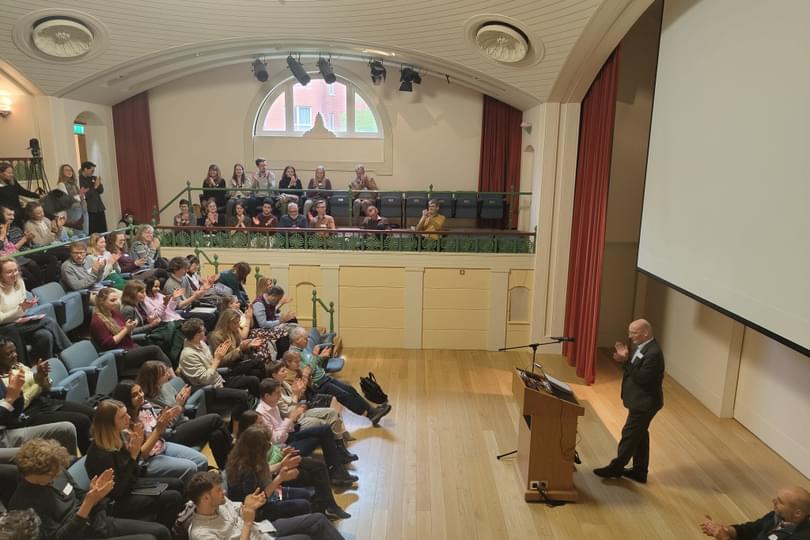
The Oxford Martin Programme on the Future of Food recently celebrated the last Wellcome-funded LEAP conference. The conference showcased novel research findings, examining the relationship between livestock, the environment and people; and brought together a strong community of researchers in these fields.
Taking place at Lady Margaret Hall, academics from within and outside the University of Oxford discussed research that covered a range of topics, including the best ways to restore land previously used for food production to ensure optimal climate mitigation, how frog meat could be a key to sustainable wildlife utilisation for food, and the effects of a carbon tax on food purchases and associated environmental footprints.
The LEAP conference has provided fantastic opportunities for researchers working on issues related to livestock, the environment, and crucially, people, to come together and share their work.
The mechanics of the Harmonised Environmental Storage and Tracking of the Impacts of Agriculture (HESTIA) platform, developed by the Oxford Martin Programme on Food Sustainability, were also explored in detail. Bookended by talks from keynote speakers Professor Lindsay Jaacks, from the University of Edinburgh, and Dustin Benton, from the Green Alliance, the LEAP conference provided researchers with many opportunities to network, share best practice, and discuss the conference themes.
Professor Sir Charles Godfray, co-Director of the LEAP programme and Director of the Oxford Martin School, said:
‘Since 2017, the LEAP conference has provided fantastic opportunities for researchers working on issues related to livestock, the environment, and crucially, people, to come together and share their work. This 6th conference saw many familiar faces return to Oxford, and created a real sense of a community beyond the limited lifetime of the project.’
The Livestock, Environment and People (LEAP) programme, funded by the Wellcome Trust and affiliated to the Future of Food programme, aims to understand the health, environmental, social and economic effects of meat and dairy production and consumption, and to provide evidence and tools for decision makers to promote healthy and sustainable diets.
Since 2017, as well as holding its eponymous conference annually, it has conducted interdisciplinary research across five main themes:
- How future trends and policies around meat and dairy impact health, the environment and economics;
- Analysing the social and political economy context in which food system decisions are made;
- Assessing the health effects of meat and dairy consumption and testing behavioural interventions to promote healthy and sustainable diets;
- New quantitative methods for assessing the environmental effects of meat and dairy; and
- Stimulating debate and informing public attitudes.
The LEAP programme is coming to a close but the community of researchers remains robust and enthusiastic. They are currently exploring ways to fund further annual conferences on the themes of LEAP, continuing to build research evidence, support early-career researchers, and champion efforts for diet and farming change.